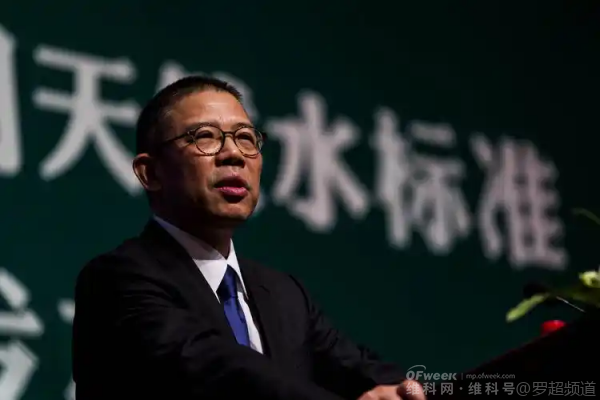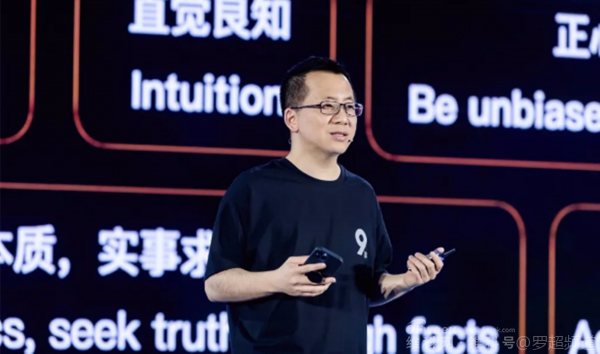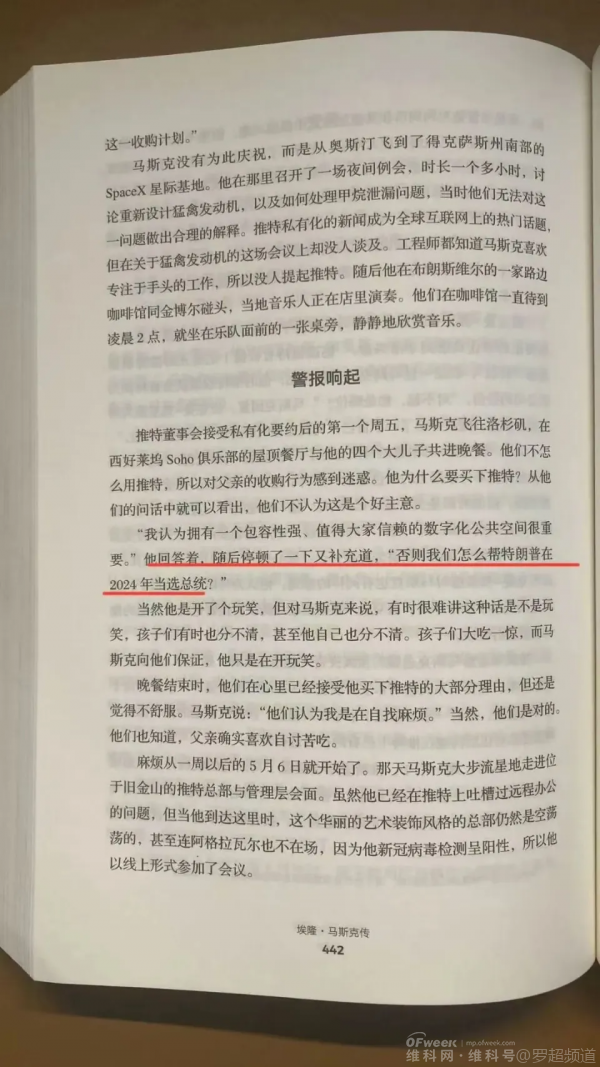Zhang Yiming will not apologize
![]() 11/26 2024
11/26 2024
![]() 678
678
Zhong Shanshan, who has unleashed all his firepower, has become the richest man in China's history who dares to speak out the most. If we say his disdain for live streaming and his harsh criticism of e-commerce platforms for low prices, as well as his advocacy for the real economy, reflect his business acumen, then his anger at Douyin and his demand for Zhang Yiming to apologize, making him the "first fighter against algorithms in China," is purely a personal expression of this former richest man.

Regardless of whether it was a professionally designed PR stunt, this 70-year-old man, with righteous indignation and tears in his eyes, fully expressed the frustration he had endured for years from online bullying in front of the media, evoking deep empathy from many netizens. Some say that Zhong Shanshan has lived through it all and can now do as he pleases. The former richest man has set aside his status to defend his damaged reputation and the injustice done to his deceased mother, fueled by righteous indignation.
The question is, will Zhang Yiming and Douyin really apologize and respond to Zhong Shanshan's demands? I'm afraid it's not easy.
1
In fact, before Zhong Shanshan, there were many people who criticized algorithms, among whom Chen Weixing, the founder of Kuaidi Dache and an early investor in ByteDance, was relatively influential. In January this year, he posted a series of scathing criticisms of Douyin on his WeChat Moments, using harsh language such as, "AI will create modern-day demons, and those possessed by these demons don't even realize it themselves."
However, his punches fell on cotton, making no sound at all. People care about your voice, not necessarily because of what you say, but mainly because of who you are.
By the end of the year, when Zhong Shanshan unexpectedly launched his attack, the outcome was entirely different. The status of the "former richest man" and the media campaign organized by Nongfu Spring made the battle between the new and old richest men, "Zhong Shanshan vs. Zhang Yiming," an annual event in China's business community.
2
Zhong Shanshan's plight is obvious to all. However, I don't think Zhang Yiming will apologize to him. Even further, I believe that unless the platform can determine that the content is a rumor or deemed unsuitable for distribution on the platform after Zhong Shanshan provides evidence, Douyin will not "intervene" in content that Zhong Shanshan claims is detrimental to him.

The former richest man is not the only victim of online bullying, and Douyin is not the only platform where online bullying exists. If Zhong Shanshan, because of his status as the "former richest man," can demand an apology from Zhang Yiming and ask Douyin to intervene in the content, and if both Zhang Yiming and Douyin comply, isn't it unfair to the remaining ordinary people who believe they have suffered similar experiences? Not just on Douyin, but on any platform worldwide where similar online bullying occurs, ordinary people can only submit complaints for handling—and it's considered efficient if the platform can seriously handle them within 24 hours.
Ordinary people who encounter online bullying can only file complaints, and a small portion of them with the energy, time, and financial resources will report to the police or even sue. If that's the case, why should Zhong Shanshan deserve an apology from Zhang Yiming and Douyin? Just because he was the former richest man?
On the other hand, when even the former richest man encounters large-scale online bullying and needs to "launch an attack" to gain attention, the severity of online bullying becomes evident. On August 1, 2024, the introduction of the "Regulations on the Governance of Online Bullying Information" provided an official backstop.
3
Zhong Shanshan's attack on Douyin and Zhang Yiming targets "algorithms." He bluntly stated, "I ask the platform to kneel and apologize to the victims of algorithms!" The question is, is it really the algorithm that harmed the former richest man? Is the former richest man really a victim of algorithms?
Before the emergence of the "algorithm" model, which presents different content to different people, many highly influential celebrities, public figures, and entrepreneurs faced similar rumors and online bullying on the internet. Recent examples include Liu Chuanzhi and Lenovo, Jack Ma and Alibaba, Robin Li and Baidu. Further back, there was Qiao Renliang, who committed suicide due to depression caused by online bullying—online bullying against him continued even after his death. Recently, his mother once again appealed to netizens to stop rumors and attacks. It's worth noting that Douyin had not yet been launched when Qiao Renliang encountered online bullying.
Even if we really want to target "algorithms," Douyin is not the only platform that uses algorithm-recommended content. In fact, all platforms today are "algorithmized," from short videos and Xiaohongshu to e-commerce platforms.
It is undeniable that algorithms can amplify network effects, both positive and negative. The saying "Good news travels slowly, while bad news spreads fast" holds true. Under the algorithm effect, some anti-intellectual rumor content is likely to be more accurately and frequently recommended to those who are eager to consume it. The corresponding groups then interact, share, and recreate, continuously amplifying the dissemination effect. Fortunately, I have seen many platforms no longer adhere to the "algorithm-first" approach but emphasize the "human-machine combination," using human values to influence the distribution of algorithms, weakening the problem of information cocoons, and avoiding online bullying. Douyin also needs to be awakened by Zhong Shanshan's attack and consider how to do better in anti-bullying, establishing a stronger firewall against online bullying in content screening, content recommendation, complaint mechanisms, and emergency response.
4
Dialectically speaking, from Zhong Shanshan's attack on Douyin, we can also see that Douyin and its algorithms are indeed neutral. It does not treat people differently based on their social status (within the scope of laws and regulations).
I have heard a joke before: When a popular portal website wanted to collaborate with a celebrity, the celebrity readily agreed with a low price but had an additional condition: providing N pages of links and asking the platform to delete them all. Back then, "deleting posts" was still an industry, and negative news about the wealthy could be non-existent.
In recent years, jokes about "some rich person using capital to manipulate public opinion on a certain platform" are not uncommon and are even happening.
In the biography of Elon Musk, he admitted that his consideration for spending $44 billion to acquire Twitter was to help Donald Trump become the President of the United States in 2024. Whether it's a joke or not, Musk's wish has come true. After Trump became the President-elect of the United States, Tesla's stock price rose by 45%, increasing its market value by $350.7 billion, further solidifying Musk's position as the richest man in the United States. Additionally, Trump once stated that if elected, he would send Mark Zuckerberg to prison for life, suspecting him of manipulating the election through Meta.

In the last century, the French philosopher Michel Foucault put forward a thought-provoking viewpoint. "Knowledge is discourse, and discourse is power." In society, whoever holds the "power of discourse" can reflect their interests, express their will, and guide public opinion.
Today, who holds the "power of discourse" on internet platforms? In China, the answer is definitely not the richest man, whether current or former. I believe this is a good thing.







